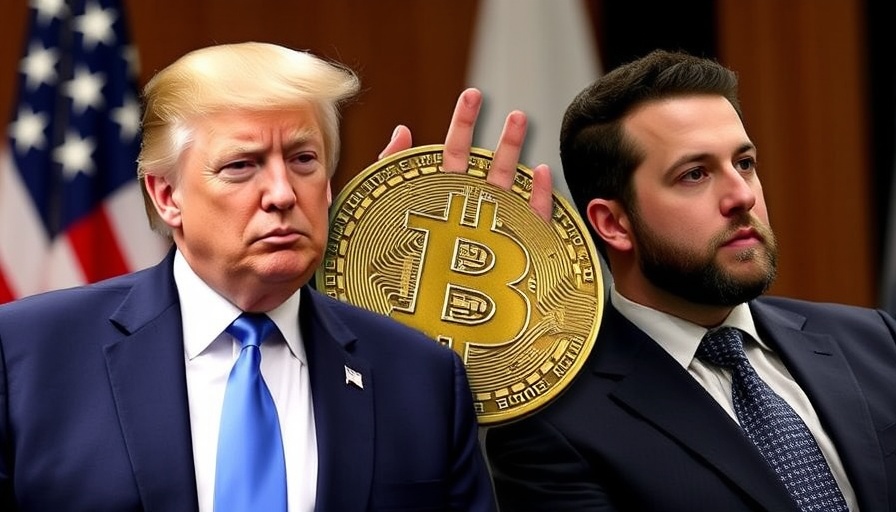
Bitcoin Takes a Backseat in Trump-Bukele Talks
In a surprising turn during the recent meeting between U.S. President Donald Trump and El Salvador's President Nayib Bukele, Bitcoin was notably absent from discussions that centered around pressing topics of trade and immigration. When both leaders had previously positioned themselves as champions of Bitcoin policy, their decision to skip over cryptocurrency in favor of more traditional concerns raises eyebrows.
Immigration Concerns Dominate the Agenda
The April 14 meeting focused heavily on immigration issues and bilateral security, marking Bukele's first official visit to the White House during Trump's second term. Talks included Trump's proposal to transfer U.S. citizens convicted of crimes to prisons in El Salvador, emphasizing a need for Bukele to expand his country’s facilities for incoming prisoners. This initiative aligns with the ongoing narrative of crime and punishment that has characterized much of U.S.-El Salvador relations.
Trade Dynamics Under Scrutiny
Trump didn't just focus on immigration; the ongoing trade war was also a critical talking point. His discussions hinted at potential exemptions for automakers to aid in the transition of their supply chains. This volatility in trade relations creates further complexity for both nations, overshadowing the advancements both leaders have made in cryptocurrency.
What’s Next for Bitcoin Policy?
Interestingly, despite the lack of focus on Bitcoin during the meeting, both leaders have a vested interest in its success. El Salvador made history by adopting Bitcoin as legal tender in 2021, while Trump announced plans to create a Bitcoin strategic reserve. However, this meeting's avoidance of digital currency discussions suggests a possible shift in priorities that cryptocurrency advocates should watch closely.
Looking Ahead
As the political landscape evolves, it's essential for advocates of cryptocurrency to understand the implications of such high-level decisions. Will Bitcoin remain a priority in their policies, or will traditional economic issues take precedence? As the 2024 election nears, the future of Bitcoin in U.S. and Central American politics could hinge on these discussions.
 Add Row
Add Row  Add
Add 




Write A Comment